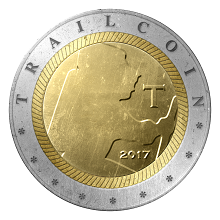The Root Cause: Social Oppression and the 4 Noble Truths

It is no secret that freedom can cease to exist. Far beyond the dogma of religious institutions, we find that our social architectures can reflect our spiritual traditions. If the ideas and actions of Mother Teresa, Simone de Beauvoir, Noor Inayat Khan, Vandana Shiva, Pema Chodron, and others, were supported to the same degree as our banking and real estate systems are, how different would our world appear!? Pope Francis, Abbie Hoffman, Muhammed Ali, Ghandi, Lama Garchen Rinpoche, and countless others, have expressed their spiritual values in respect to social philosophy. Political philosophy and social activism exemplify an evolutionary process. Like all relative matters in an objective and ever changing duality, a time-based reality of what was, is, and is to come, socioeconomic action has causes and effects. These causes and effects are secondary to our internal observation of our external identity. Even to a Tibetan monk, while emolliating himself, the primary issue at hand is eliminating his own suffering for the sake of all beings. That is to say, eliminating internal suffering, in protest of the external suffering imposed on others. So then, what is the root cause of suffering?
The teachings of Shakyamuni Buddha seem to distill the nature of being to a simple formula. In the first turnings of the wheel of Dharma, he proposed a psychological map divisible by Four Noble Truths; first, suffering conceptually exists. second, suffering arises. thirdly, it has a cause. Finally, we can free ourselves from it. These are essentially the complete and concise teachings of Buddhism. To add anything, or take anything away, would render them unnecessarily cluttered or incomplete. However, many spiritual philosophies have taken from, and added to this fundamental teaching, including Buddhism itself. Taking from these four noble truths it seems can be valuable up to a certain level of aptitude. Most faith based religions can benefit in this way; Christianity, Judaism, Islam, and Hindu. After all, without suffering, why would anyone pursue religious austerities at all? What would be the motivation?
We can notice also that each of these religions has a Mystic tradition. These traditions indirectly benefit from the 4 truths in their entirety. The third Truth is philosophically included in all of these; Western Mystery Tradition or Contemplative Christianity, Kabbalah, Sufism, and Hindu Tantra. This third truth provides a larger insight into the nature of being; interdependence, connectedness, no separation. It is here that we learn that are suffering although inevitable is of our own creation through the desire to experience things in some way other than how they truly are at any given moment. From the mystic’s level of aptitude we can see that it is futile to give responsibility for our suffering to an entity outside of our self. We realize that our suffering is of our own creation. When we grasp at concepts of a separate self less and less. Conceptual ideas about who we are or what we are ‘supposed’ to be fade and dissolve. We can connect more often to a state of bliss and rest alternatively in a that state of “rapture”. Many have witnessed this state, yet few of us today have attained it for more than a week, a day, or even a moment. This leaves us at the fourth Noble Truth, which, in the end, seems to transcend even these mystic traditions. The fourth of these truths implies that even bliss cannot be experienced unless contrast by suffering, and therefore is itself a form of suffering. Total “liberation from bondage” to suffering can be achieved, and the antidote is the “absence of inherent existence”, emptiness. The antidote is the Perfect Wisdom of seeing reality as an arising, yet impermanent 3D illusion.
Suffering is a concept,
Suffering is experienced,
Suffering has a cause,
Suffering can cease to exist… Permanently.
Politics, For the sake of all beings
All spiritual traditions tend to agree on a Perennial Philosophy of “do unto others as you would have others do unto you”. The problem, perhaps, is that it is difficult to remember this every moment of our lives. The four noble truths do not exclude political philosophy, yet do not directly mention it either.
Attainment of liberation is the aim in Buddhist philosophy, the motivation is liberation for the benefit of all beings. If we postulate that reality may be illusory, as Quantum science suggests, why create an illusion that hinders attainment of liberation!?
In a world where there is no poverty or starvation, we might have people that become billionaires for the sake of all beings. However where billionaires stand alongside poverty and starvation, it is clear that the motivation is not for the benefit of all sentient beings.
Our social architectures provide pathways that govern the behavior of our social systems, right down to the individual. Why not design our political and socio-economic systems to produce liberated beings rather than oppressed ones!?
Our ego identity has skin and a skeleton. This is what gives a boundary and structure to our sense of self. Our social organisms do not have a boundary or structure of their own. Our political architectures are what we use to give our social organisms boundaries and a skeleton. Our social identity or sense of self. The, scarcity, fear, sadness, hatred and other afflictions within us may see no end for eons, but it is ridiculous to continue to support them culturally.
While social design and Buddhist Economics may be secondary to the realization of our Buddha Nature, that does not make it futile. Remember that the Dalai Lama has historically been the president of Tibet.
Now, once we have first understand the psychological significance of the Four Noble Truths on the surface, deeper understanding comes in time. While a deeper understanding slowly unfolds with further contemplation and reflection, we can observe our social architectures to understand ways to build a society that will eliminate unnecessary distractions and support rapid personal and collective spiritual development.
Having presented our primary focus elucidated by the Four Noble Truths we can now take a look at a proposal of Four Secondary Truths.
Freedom is a concept
Freedom is experienced
Freedom has a cause
Freedom can cease to exist…Temporarily.
Essentially, we could also, and perhaps more aptly, replace Freedom with Slavery here. However, to avoid being perceived as nihilistic, ideological, or as a pessimist, Freedom should suffice. Furthermore, Emancipation, Liberation, Freedom, and Sovereignty are words that are commonly used in political philosophy to express the final goal in eliminating the unnecessary suffering referred to here as “secondary”. This unnecessary suffering is commonly referred to as oppression or slavery and here refer to the same social quality.
Freedom is a concept
The German poet Goethe said that “words are but sound and smoke befogging Heavens blazes”, and Shakespeare as well has said that “a rose by any other name would smell just as sweet”. We need not go into the General Semantics of Alfred Korzybski to understand this poetic prose. Words are slippery. We can all imagine that if one person says “dog” and we each conjure a mental image, we can be sure that each mental image will be different from the others. So when we say emancipation, liberation, freedom, or sovereignty, we are speaking about a general concept and not a specific breed of animal.
Freedom is experienced
Likewise the feeling associated with this Freedom will be different to everyone, and perhaps even different in each event of experience when the feeling arises. For example, that moment of freedom when you walk away from a job you didn’t like may feel different than a weekend sailboat adventure.
Freedom has a cause
The primary cause of self-created suffering is mental attachment mental aversion and ignorance The secondary cause of sociopolitical suffering is caused when we are born into indebtedness, when our birthrights are taken from us before our first breath. Our basic needs are evolving from the time of Maslow, yet we need not complicate things. The simple fact is that, as Fuller has said, “One in ten thousand of us can make a technological breakthrough capable of supporting all the rest.” The indebtedness that we are born into manifests in two main ways; usury imposed through lending institutions, and rents imposed through land ownership. Although relatively trivial in comparison, patents on intellectual property, trade taxes, and multitudes of still lesser imposed limitations to personal liberty could be addressed. Again, not to complicate the matter, Usary and Land Tenure are paramount.
Freedom can cease to exist
Culturally speaking, we are all born relatively free by default to the loving-kindness of our caretakers up to a certain age. And in most of the so-called developed world that age is 18 years of age at what point we could say that we are set free to create a life for ourselves, however we could also say that, at that point, we are relinquishing our freedom to the indebtedness of the Social Architecture in which we live. Our cultures and societies typically do not support us as a mother does a child. Some of our socialist nations are beginning to slowly remedy this problem, however it is not just a national issue, it is a global issue. Those few people with the resources necessary to redesign are social architectures, are generally born with their birthrights intact at the expense of the rest. Those blessed with enough money that borrowing is unnecessary, and those with land, in many cases are lending, for profit, to those in need, and collecting rents from they who borrowed the money because the could not afford the rent. This is not to say that these people are doing anything wrong because this is the social architecture that we all agree upon. The unfortunate thing is that those who have their freedom, do not seem to know that they have it, just as a fish does not know that it’s wet. Those who do see their blessings, in most cases do not see why they have them. Even more unfortunate, is that they don’t see that they have freedoms largely at the expense of those already oppressed.
The four secondary truths of unnecessary suffering restated:
Externally imposed suffering has a cause and effect, and therefore can be eliminated by cutting it at the Root. The Three Jewels of political-economy are the factors of Land, Labor, and Capital. By taking refuge in these, we allow their fruits to be distributed in a way that allows all sentient beings their birthright of liberation and Freedom. This includes a place to rest their bodies. This includes access to the resources of land belonging usufruct to all and limited to the lifetime of those living upon any particular parcel of land. This concludes that any useful fruits, or “Capital”, created from the land through the labor of its occupants who dwell upon it, belongs first to the land, and second, to those laborers. The share received by the land to be paid in sustainable remediation and development, and the share of the laborers to be paid in any sort of economic credit or resource, yet never to be left indebted to any person or group who claims dominion to “reap where they do not sew.”
Hello @pauldionbrooks,
Congratulations! Your post has been chosen by the communities of SteemTrail as one of our top picks today.
Also, as a selection for being a top pick today, you have been awarded a TRAIL token for your participation on our innovative platform...STEEM.
Please visit SteemTrail to get instructions on how to claim your TRAIL token today.
If do not wish to be promoted by SteemTrail, please reply with "Stop" to opt out.
Happy TRAIL!
